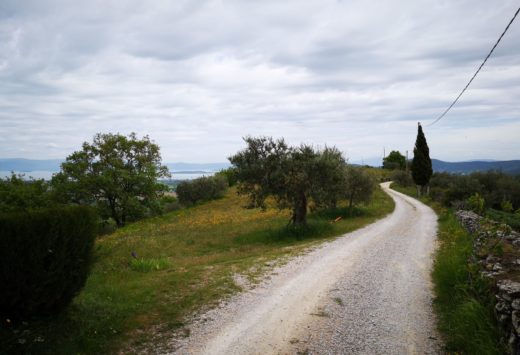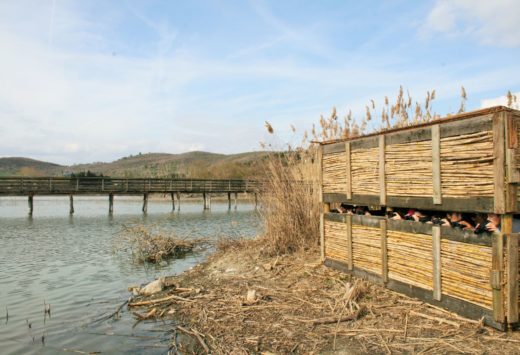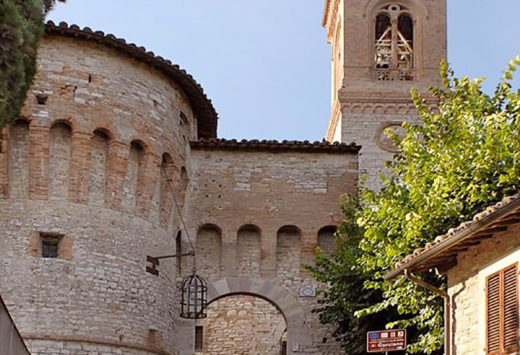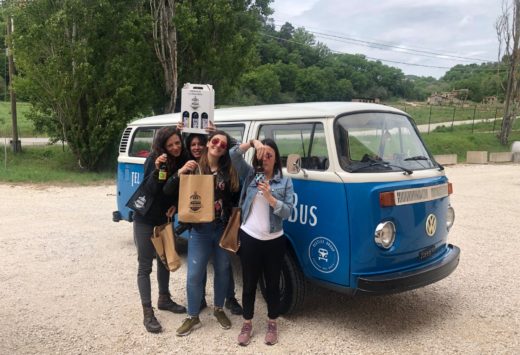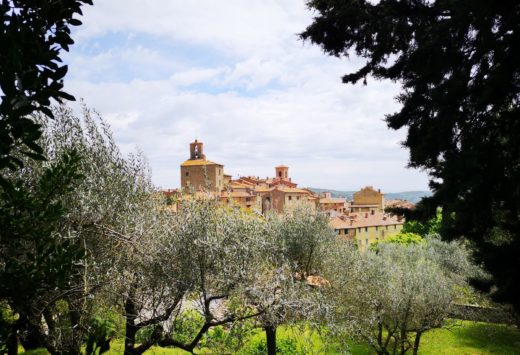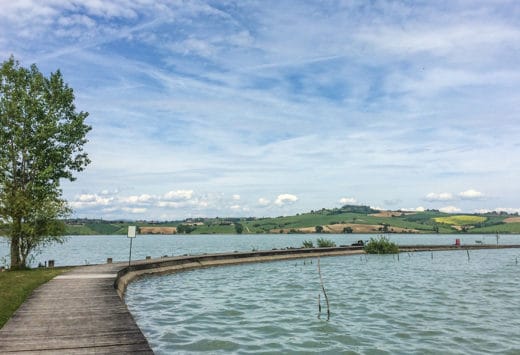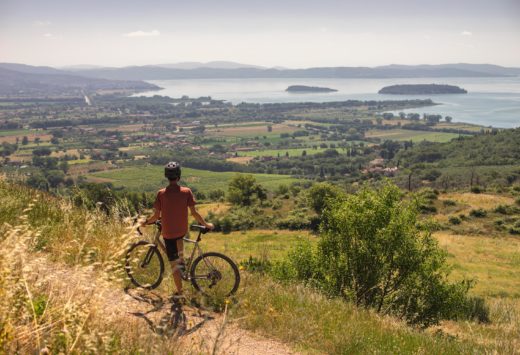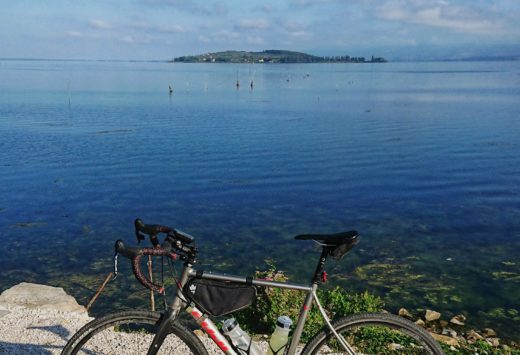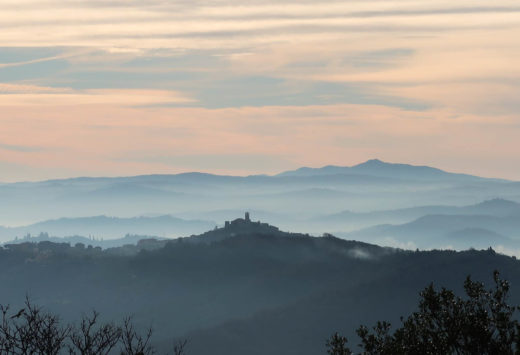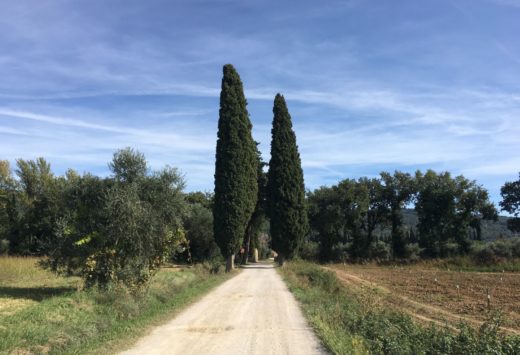Discover Piegaro with us
If you are planning a trip or embarking on an adventure to discover Umbria, you shouldn’t miss the charming village of Piegaro. Located in the province of Perugia in a predominantly hilly area that flanks the course of the river Nestore, the village has just over 3500 inhabitants and over the centuries it has enjoyed a very favourable geographical position.
The first human settlements in this area date back to the prehistoric period and its verdant hills welcomed villages and were a safe home for the indigenous people until the advent of the Etruscan peoples, who settled definitively in the territory in the 9th century B.C. and imposed their hegemony upon it. Piegaro was then conquered by the Romans who, in 290 BC, established a proper fortified settlement. The period of splendour experienced under the period of Roman domination ended, however, with the arrival of the Vandals and the Longobards, who sacked the city and completely altered all its social, political and economic equilibrium, imposing a regime of slavery. A tyrannical, oligarchic feudalism followed until the 12th century after which it became part of the Duchy of Chiusi until 1601. After numerous struggles, Piegaro finally became a Free Commune, thus obtaining freedom from slavery and recovering its precious autonomy.
Among the activities most deeply rooted in the culture of Piegaro, and which have strongly contributed to the economic development of the village, is the art of glassmaking. Ancient documents reveal that this renowned activity developed in Piegaro as early as 1250 and that the glassworks experienced its most splendid and successful period in the 17th century. The sublime skill of the glassmakers, together with the wide availability of wood to be used as a combustible material, has meant that glass processing has continued over the centuries and up to the present day. The citizens of Piegaro specialized in the production of glass panes for windows, mosaic tiles, glasses, flasks and crystal ware. The mosaic tiles produced by the glassmakers of Piegaro were also chosen for their fine quality by the architect of Orvieto’s cathedral, who personally chose the best materials for the creation of his great work. These materials were also used for the decoration of other beautiful cathedrals. Over the years, the Piegaro glassworks has also won awards, such as the silver medal for merit at the Esposizione Industriale Italiana (Italian Industrial Exhibition), which was held in Florence in 1861. The art of glassmaking still thrives thanks to the Vetreria Cooperativa Piegarese which was founded in 1960. Its new factory is currently one of the most important in the Italian and European glass sector and has managed to continue Piegaro’s long and precious glassmaking tradition.
But glass production is not the only activity that is typical of the tradition and culture of this village; Piegarois also on the Strada del Vino Colli del Trasimeno (Wine Route) and the Strada dell’Olio Extravergine di Oliva DOP (Extra Virgin Olive Oil Route) due to the elegance and quality of its local food and wine products. They are the result of highly productive land worked with impassioned enthusiasm and offer unique and authentic flavours and aromas even for the most discerning palates.
Among the regular, unmissable annual events for the inhabitants of Piegaro and its visitors is the Sagra della Castagna e dei prodotti tipici (Festival of the chestnut and other typical products), which is now in its 31st year. The event, which takes place in the first half of October and lasts about ten days, is quite extensive and much anticipated, sweetening the palates and hearts of anyone who loves autumn and has a sweet tooth! The chestnut becomes the undisputed star of numerous tastings via delicious and appetizing dishes, from first courses to desserts, all skilfully prepared according to the deeply-rooted Umbrian culinary tradition. Chestnuts are elegantly enhanced in all manner of ways, and visitors can take part in interesting gastronomic displays, where they can sip a fine local wine in good company and relax with quality entertainment provided every evening by musicians and other performers, with a host of activities to keep children entertained as well!
Another important event organized in Piegaro is the Festival del Vetro (Glass Festival), which aims to promote the thousand-year-old, renowned and skilful tradition of glassmaking in the village. The Festival usually takes place at the Museo del Vetro at the end of May and lasts 3-4 days, focusing on the importance and various uses of glass. Seminars, workshops and courses are available for adults and children where the various glass processing techniques are put into practice and explained by master craftsmen at a national and international level. Participants can express their creativity and enjoy seeing how a piece of glasswork evolves and the infinite forms it can take. The event also includes historical, artistic, theatrical and literary insights concerning glass and various concerts will be held to entertain the participants.
Among the typical dishes of Piegaro, whose origin seems to date back to the Roman period, is the delicious speciality called torta al testo, a flatbread made of flour, water, olive oil, and salt that is named after the testo, a red-hot stone on which this ancient type of bread is cooked. Torta al testo can be enjoyed on its own or stuffed with cold cuts and vegetables.



